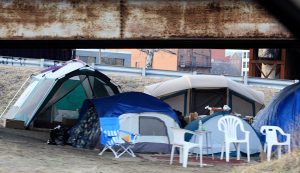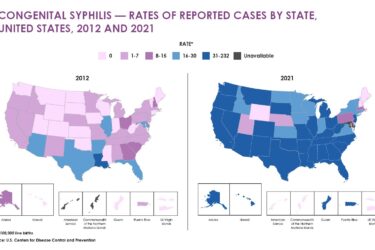 A spate of recent stories highlighting the nation’s housing crunch has shined a spotlight on how homelessness or other poor housing situations impact health. So what’s being done about it?
A spate of recent stories highlighting the nation’s housing crunch has shined a spotlight on how homelessness or other poor housing situations impact health. So what’s being done about it?
At Health Journalism 2018, a panel of experts will weigh how challenges when it comes to where people live can also affect how they live, as well as consider how programs and other potential solutions and policies aim to improve wellness by tackling the housing conundrum through a more integrated approach.
Attendees will look at the issue through the lens of panelists from two Phoenix-based organizations that are making an effort to take on homelessness and health head-on, as well as a Washington, D.C.,-based policy expert.
Brandi Whisler serves as director of outpatient services at Circle the City, a nonprofit community health care organization founded by physician Sister Adele O’Sullivan that provides health care to homeless patients, including traditional outpatient care as well as respite care.

The group served as one of five demonstration sites for a U.S. Centers for Medicare and Medicaid-backed study of acute medical care for homeless persons who are not quite sick enough to be admitted to a hospital, the Phoenix Business Journal recently reported.
“In Arizona, the per-patient cost to CMS when comparing the 12 months before and after receiving medical respite care at Circle the City was reduced by an average of 58 percent. Going from $2,220 monthly down to a $900 monthly on average, that’s a potential savings of more than $4.7 million attributed to the 309 patients who participated in the study,” the Journal’s Angela Gonzales wrote in her piece.
Panelist Ginamarie Brockdorff, who manages supportive services for Lodestar Day Resource Center, will discuss daily challenges and issues facing clients and patients. Both Circle the City and Lodestar are part of as part of Phoenix’s Human Services Campus, a collaborative effort among a variety of local groups and authorities that also provides dental care, substance abuse and mental health services, a shelter, a music wellness program and other services in one central location.
Additionally, Stacey Millett, director of the Robert Wood Johnson Foundation and The Pew Charitable Trusts’ joint Health Impact Project, will lay out policy issues at the national, state and local level. The joint project examines how social issues such as housing, along with education and employment, can weigh on people’s health.
We’ll discuss a range of issues from financing and availability of housing as well as other barriers that keep vulnerable populations from finding – and keeping – adequate and affordable housing. We’ll also touch on related environmental factors such as air quality, lead paint and soil contamination. Issues specific to homelessness, such as access to care and communicable diseases such as the recent string of hepatitis A outbreaks, will also be on the agenda.
Reporters and editors covering housing issues in both urban and rural areas will leave with a deeper sense of the outside factors that can lead to homelessness as well as what health issues to pay closer attention to in their reporting. They’ll also gain a better understanding of how various groups, agencies and officials are trying to approach the issue amid a trend toward more holistic solutions.
The panel will be held Friday, April 13, at 9:20 a.m. and will use the hashtag #AHCJ18housing.






